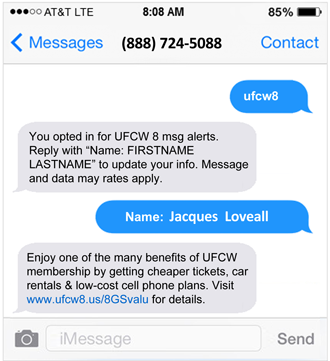We have had meaningful discussions with High Times since the expiration of your contract and have made progress on several key issues. As the contract extension deadline gets closer, it’s important to outline the bargaining process.
 Contracts generally have a set length of time, typically three to four years. Around the end of the agreement, we begin bargaining new terms, there is usually some back-and-forth discussion about what changes the members are looking for in a new agreement and what changes are important to the employer to continue operations. We continue bargaining as long as we are making progress and secure a contract extension with the employer before the contract expires if additional negotiations are still needed to reach an agreement.
Contracts generally have a set length of time, typically three to four years. Around the end of the agreement, we begin bargaining new terms, there is usually some back-and-forth discussion about what changes the members are looking for in a new agreement and what changes are important to the employer to continue operations. We continue bargaining as long as we are making progress and secure a contract extension with the employer before the contract expires if additional negotiations are still needed to reach an agreement.
As the contract or extension deadline gets closer, we’re working to get the best possible agreement, exhausting all avenues, with all options remaining on the table in negotiations. When we reach a tentative agreement, members are asked to review and vote on the company’s “last, best, and final offer.” If the Union and company can’t reach an agreement, members are asked to review and vote to reject the offer and authorize a strike.
This process happens regularly with all unions throughout the United States. Sports athletes, fire fighters, police, hospital, retail workers and state employees all participate in a similar process each round of negotiations. You can stay informed by signing up for text alerts to get updates as negotiations progress.
It’s also important to understand the principle behind bargaining a Union contract, Solidarity. A large group pulling in the same direction is stronger than any one individual and a crowd of workers saying the same thing in unison is louder than any singular voice. Working in unity, we are stronger together!
Together, we will achieve an agreement our members are all proud to ratify. We will prove, Solidarity Works!


